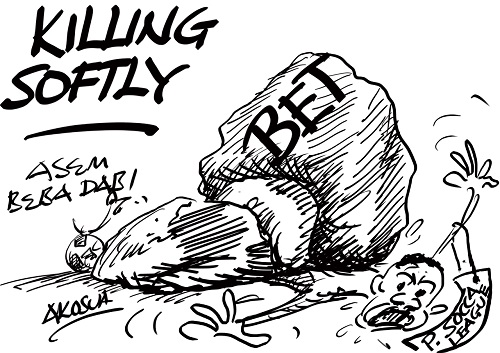
An insect scientist and founder of the International Stingless Bee Center, Rev. Prof. Peter K. Kwapong, has warned that excessive and unregulated use of pesticides and other agrochemicals is killing pollinators, especially bees, and putting Ghana’s agricultural economy in danger.
Speaking at a “Pollinator Conservation and Honey Tasting” event organised by the US Embassy in Accra on Thursday, he said bees were being destroyed by farming practices that ignored their vital role in food production.
“When plants are flowering, that’s when the bees come to pollinate,” he said adding “If we spray chemicals at that time, we kill the bees. Without bees, our crops suffer. And when our crops suffer, the economy goes down. It’s that simple.”
He explained that while pests must be controlled, farmers must also understand that pollinators were part of the farming system. “We cannot ban pesticides completely. But we need smart practices—like spraying only in the evening after the bees are gone,” he advised.
He called for government policy to regulate pesticide use and to support beekeepers whose work was crucial to pollination and food security.
Prof. Kwapong stressed that bees were not only important because of honey, wax, or propolis, but because they pollinate major crops like cocoa, mango, cashew, oranges, and shea butter.
“Without pollinators, yields will drop. Ghana depends on crops like cocoa for export, and most of our people are farmers. If pollinators disappear, our livelihood disappears,” he explained.
He also highlighted how the destruction of bee habitats through illegal mining, known as galamsey, and urban development was worsening the problem.
“Bees drink a lot of water. If that water is contaminated with mercury or cyanide from galamsey, they carry it back to the hive and mix it with honey. People can end up buying poisoned honey without knowing, some hives are even collapsing because of chemical contamination,” he cautioned.
The professor also noted that tree-cutting for housing and road construction was removing natural homes for bees.
He urged city authorities and individuals to bring back tree planting along roads and in homes, saying “Let’s stop covering every inch of land with pavement blocks. Plant fruit trees. Bees need flowers, and we need bees.”
The Executive Secretary of the Ghana Beekeepers Association, Mr Oscar Nartey-Adjabeng said “bees are beneficial insects. Apart from pollination, they give us bee venom, wax, royal jelly, and propolis and all valuable products”.
He called for more government and donor support to expand beekeeping as a business to help boost the economy.
Mr Nartey-Adjabeng, who trained in Israel, said Ghana had the environment to produce not only honey, but also branded, flower-specific honey like in East Africa. “If we target areas like mango or cashew zones, we can produce unique, high-quality honey for local and international markets.”
Founder of “Be My Honey,” a youth-led honey business, Ms Henrietta A. Boateng, said her experience with the Mandela Washington Fellowship helped her grow her business and reach new markets.
“Through events like this, we show people the value of our honey and beeswax. It has helped our brand get noticed, both in Ghana and abroad.”
BY AGNES OPOKU SARPONG
The post Unregulated pesticide, other agrochemicals application killing pollinators – Prof. Kwarpong appeared first on Ghanaian Times.
Read Full Story







Facebook
Twitter
Pinterest
Instagram
Google+
YouTube
LinkedIn
RSS